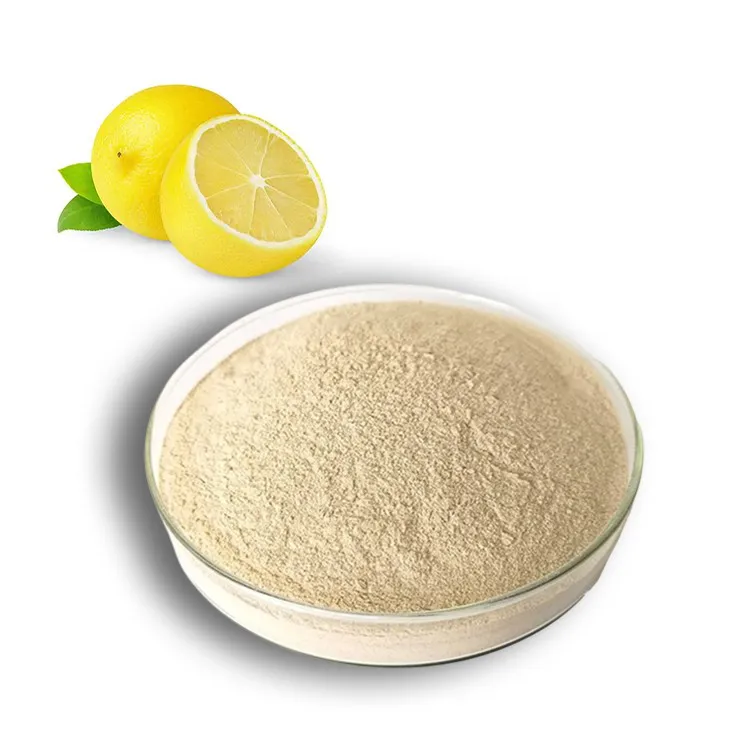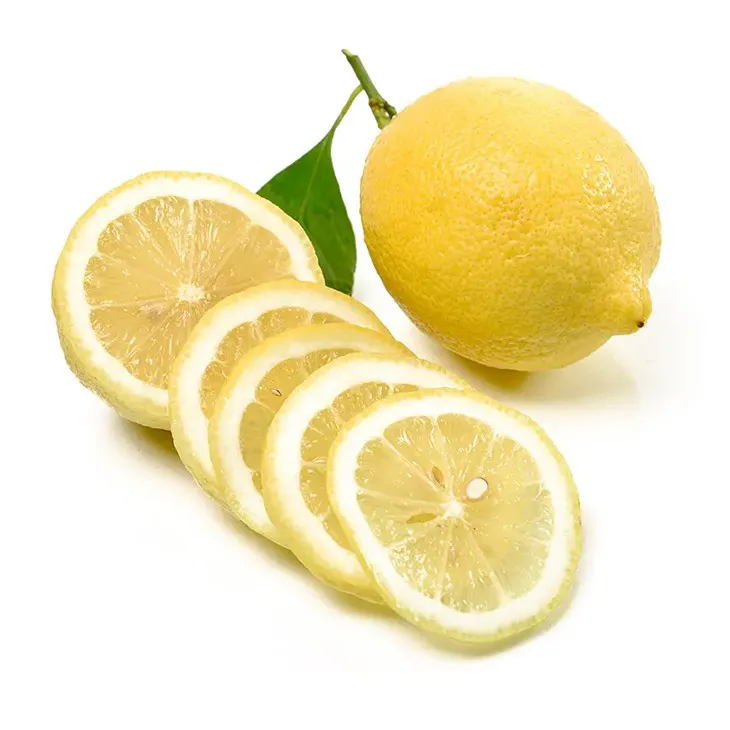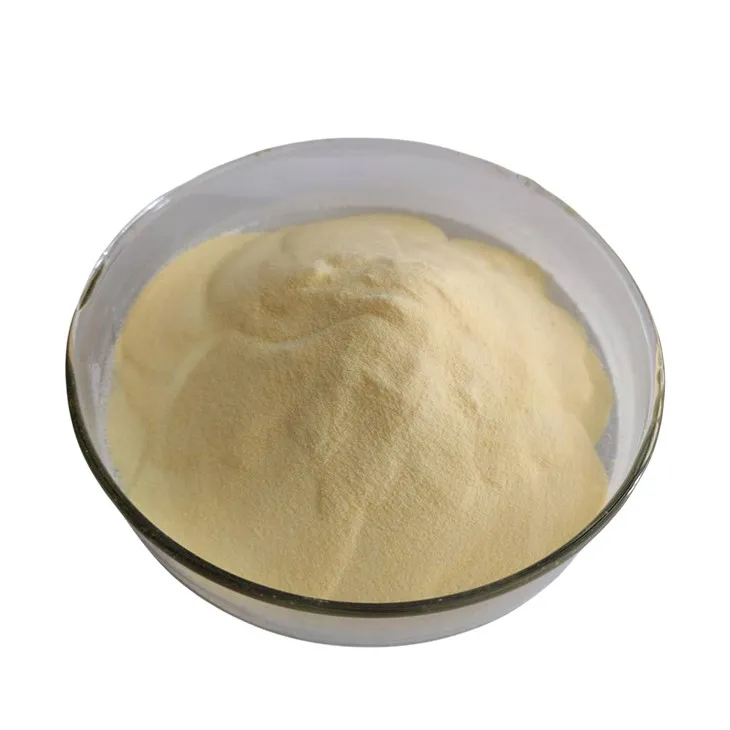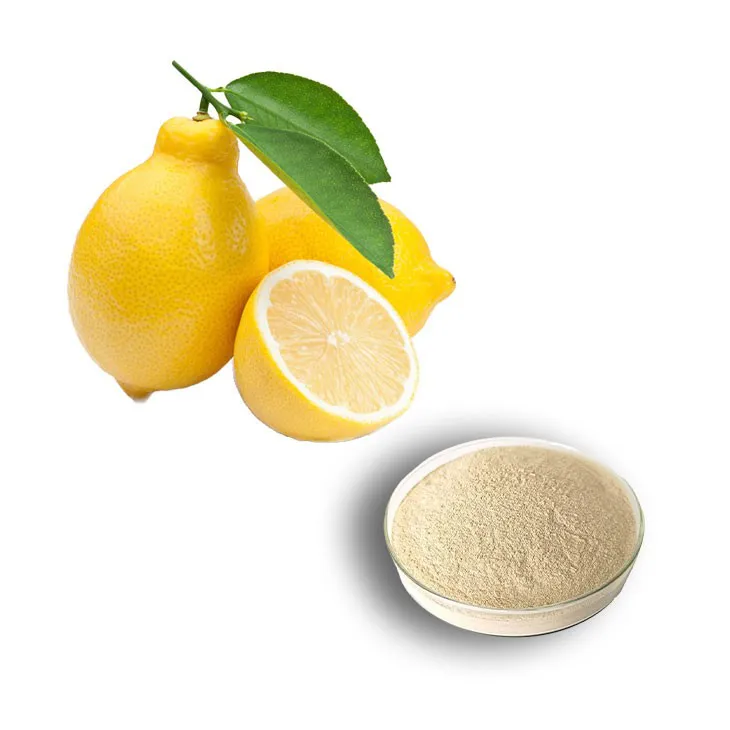- 0086-571-85302990
- sales@greenskybio.com
Reliability and Efficiency: Pillars for Top Lemon Extract Manufacturers to Provide Effective Products.
2024-12-10

1. Introduction
Lemon Extract has become an increasingly popular ingredient in various industries, including food, beverage, cosmetics, and pharmaceuticals. As the demand for high - quality Lemon Extract grows, top - tier manufacturers are under pressure to consistently produce effective products. Reliability and efficiency are two crucial factors that enable these manufacturers to meet this challenge. This article will explore how these elements play a significant role in the production of Lemon Extracts.

2. Sourcing the Finest Lemons
2.1 Geographic Considerations
One of the first steps in ensuring high - quality lemon extract is sourcing the right lemons. The geographical origin of lemons can significantly impact their quality. For example, lemons grown in certain regions may have a more intense flavor, higher acidity, or a more desirable aroma. Manufacturers often look for regions with ideal climate conditions for lemon cultivation, such as the Mediterranean area. The warm, sunny climate in these regions promotes the growth of lemons with rich flavors and high juice content. Additionally, factors like soil quality also play a role. Lemons grown in well - drained, fertile soil tend to be of better quality.
2.2 Selecting the Right Varieties
There are various lemon varieties available, and not all are equally suitable for extraction. Some popular varieties used in lemon extract manufacturing include the Eureka and Lisbon lemons. These varieties are known for their high juice yield and distinct flavor profiles. Manufacturers carefully select the lemon varieties based on the intended use of the extract. For instance, if the extract is meant for use in high - end culinary products, a variety with a more complex and refined flavor may be preferred.
- Eureka lemons are often favored for their relatively thin skins, which means a higher proportion of the fruit is usable for extraction.
- Lisbon lemons, on the other hand, are known for their slightly sweeter taste and are sometimes chosen for products where a balanced flavor is desired.
2.3 Quality Assurance in Sourcing
To ensure reliability in the sourcing process, manufacturers implement strict quality assurance measures. This includes working with reliable suppliers who adhere to good agricultural practices. Suppliers are often required to provide certificates of origin and quality. Additionally, manufacturers may conduct regular inspections of the lemon orchards to check for factors such as pest infestation, proper irrigation, and the use of pesticides.
- Inspection teams may check for signs of common lemon pests like aphids or citrus leaf miners.
- They also ensure that the orchards are using appropriate amounts of water, as over - or under - irrigation can affect lemon quality.
- The use of pesticides is carefully monitored to ensure that it complies with safety regulations and does not leave harmful residues on the lemons.

3. Advanced Extraction Techniques
3.1 Solvent - Based Extraction
One of the common extraction techniques used in lemon extract manufacturing is solvent - based extraction. This method involves using a solvent, such as ethanol or ethyl acetate, to dissolve the flavor - and - aroma - containing compounds in the lemons. The choice of solvent is crucial as it can affect the quality and safety of the final extract. Manufacturers use food - grade solvents that are approved for use in the food and beverage industry. For example, ethanol is a popular solvent because it is effective at extracting the desired compounds and is relatively safe.
- During solvent - based extraction, the lemons are first crushed or minced to increase the surface area available for extraction.
- The solvent is then added, and the mixture is allowed to stand for a period of time to allow the compounds to dissolve into the solvent.
- After that, the solvent is separated from the solid residue, usually through filtration or centrifugation, and the resulting solution is concentrated to obtain the lemon extract.
3.2 Cold - Press Extraction
Cold - press extraction is another technique that is gaining popularity, especially among manufacturers who aim to produce high - quality, natural - tasting lemon extracts. In this method, lemons are mechanically pressed without the use of heat. This helps to preserve the delicate flavor and aroma compounds that can be damaged by heat. The cold - pressed lemon juice is then further processed, such as through filtration and concentration, to obtain the extract.
- One advantage of cold - press extraction is that it produces an extract with a more "fresh - squeezed" flavor, which is highly desirable in many applications.
- However, it can be more expensive than solvent - based extraction due to the higher cost of the equipment and the lower yield compared to some solvent - based methods.
3.3 Supercritical Fluid Extraction
Supercritical fluid extraction is an advanced technique that uses a supercritical fluid, typically carbon dioxide (CO₂), as the extraction medium. CO₂ is a good choice because it is non - toxic, non - flammable, and can be easily removed from the final product. At supercritical conditions (above its critical temperature and pressure), CO₂ has properties that make it an excellent solvent for extracting the flavor and aroma compounds from lemons.
- This technique allows for a more selective extraction, meaning that only the desired compounds are extracted while leaving behind unwanted substances.
- It also results in a high - quality extract with a pure flavor and aroma, which is suitable for use in high - end products such as luxury perfumes or premium food products.

4. Strict Quality Control
4.1 In - Process Quality Control
During the extraction process, manufacturers implement strict in - process quality control measures. This includes monitoring the extraction parameters such as temperature, pressure, and extraction time. For example, in solvent - based extraction, the temperature needs to be carefully controlled to ensure that the solvent does not evaporate too quickly or cause the degradation of the extracted compounds.
- Temperature sensors are often installed in the extraction equipment to continuously monitor and adjust the temperature if necessary.
- Similarly, in supercritical fluid extraction, the pressure is a critical parameter, and pressure gauges are used to ensure that it remains within the optimal range.
4.2 Analytical Testing
Manufacturers also conduct various analytical tests on the lemon extracts to ensure their quality. These tests include chemical analysis to determine the composition of the extract, such as the levels of citric acid, essential oils, and other flavor - and - aroma - related compounds.
- Gas chromatography - mass spectrometry (GC - MS) is a powerful technique used to identify and quantify the volatile compounds in the lemon extract. This helps to ensure that the flavor and aroma profile of the extract meets the expected standards.
- High - performance liquid chromatography (HPLC) may be used to analyze non - volatile compounds, such as citric acid and other organic acids present in the extract.
4.3 Microbiological Testing
Since lemon extracts are used in a variety of products, including those that are consumed or applied to the skin, microbiological safety is of utmost importance. Manufacturers conduct microbiological tests to check for the presence of harmful microorganisms such as bacteria, yeasts, and molds.
- Total plate count is a common test that determines the overall number of viable microorganisms in the extract. If the count exceeds the acceptable limit, it indicates a potential contamination issue.
- Tests for specific pathogens, such as Salmonella or Escherichia coli, are also carried out to ensure the safety of the product.
4.4 Packaging and Shelf - Life Considerations
Once the lemon extract is produced, proper packaging is essential to maintain its quality and extend its shelf - life. Manufacturers choose packaging materials that are suitable for the nature of the extract. For example, for liquid lemon extracts, dark - colored glass bottles or laminated pouches may be used to protect the extract from light, which can cause degradation.
- Oxygen - barrier packaging is often used to prevent oxidation, which can affect the flavor and aroma of the extract over time.
- The shelf - life of the lemon extract is determined through stability testing, which involves storing the product under different conditions (e.g., different temperatures and humidities) and monitoring its quality over time. Based on these tests, manufacturers can provide accurate shelf - life information to their customers.

5. How Reliability Guarantees Consistent Product Quality
5.1 Standard Operating Procedures
Top lemon extract manufacturers rely on well - defined standard operating procedures (SOPs) to ensure reliability. These SOPs cover every aspect of the production process, from sourcing lemons to packaging the final product. By following SOPs consistently, manufacturers can minimize variations in the production process, which in turn leads to consistent product quality.
- For example, SOPs for lemon sourcing specify the exact criteria for selecting suppliers, the types of lemons to be sourced, and the inspection procedures to be followed.
- Similarly, SOPs for extraction techniques detail the precise parameters for each method, such as the amount of solvent to be used in solvent - based extraction or the pressure and temperature settings for supercritical fluid extraction.
5.2 Traceability
Another aspect of reliability is traceability. Manufacturers are able to trace the origin of the lemons used in each batch of extract and track every step of the production process. This allows them to quickly identify and address any quality issues that may arise.
- Using modern tracking technologies, such as barcoding or RFID tags, manufacturers can record information about the lemons, such as their source, harvesting date, and transportation details.
- During the production process, data on extraction parameters, quality control tests, and packaging details are also recorded, creating a complete history of each batch of lemon extract.
5.3 Supplier Partnerships
Establishing long - term partnerships with reliable suppliers is crucial for ensuring reliability. Manufacturers work closely with their suppliers to ensure a consistent supply of high - quality lemons. These partnerships are based on mutual trust and shared quality goals.
- Suppliers who have a good track record of providing high - quality lemons are more likely to be retained by the manufacturers.
- Regular communication between manufacturers and suppliers helps to address any potential issues in a timely manner, such as changes in lemon quality due to weather conditions or agricultural practices.
6. How Efficiency in Production Meets Market Demands
6.1 Optimized Production Processes
To meet market demands efficiently, manufacturers optimize their production processes. This includes streamlining the extraction process to reduce production time and increase yield. For example, in solvent - based extraction, manufacturers may use continuous extraction systems instead of batch systems, which can significantly improve production efficiency.
- Continuous extraction systems allow for a more continuous flow of raw materials through the extraction process, reducing downtime between batches.
- By optimizing the extraction parameters, such as solvent concentration and extraction time, manufacturers can also increase the yield of the lemon extract, making better use of the raw materials.
6.2 Inventory Management
Efficient inventory management is another key factor in meeting market demands. Manufacturers need to balance the amount of raw materials (lemons) and finished products (lemon extracts) in stock.
- By using advanced inventory management systems, manufacturers can accurately predict the demand for lemon extracts and adjust their production and procurement plans accordingly.
- Just - in - time inventory management can be implemented to reduce inventory holding costs while ensuring a continuous supply of products to the market.
6.3 Response to Market Trends
Top lemon extract manufacturers are also quick to respond to market trends. They keep a close eye on emerging consumer preferences, such as the demand for natural and organic products.
- If there is a growing trend towards natural lemon extracts, manufacturers can adjust their production processes to focus more on cold - press or supercritical fluid extraction methods, which are often perceived as more natural.
- They can also develop new product formulations based on market trends, such as creating lemon extracts with added health - promoting ingredients for the health and wellness market.
7. Conclusion
In conclusion, reliability and efficiency are indeed the pillars for top lemon extract manufacturers to provide effective products. Through careful sourcing of the finest lemons, the use of advanced extraction techniques, and strict quality control, these manufacturers are able to ensure high - quality lemon extracts. Their reliability guarantees consistent product quality, which is essential for building customer trust and loyalty. Meanwhile, their efficiency in production allows them to meet market demands in a timely and cost - effective manner. As the market for lemon extracts continues to grow and evolve, these two factors will remain crucial for the success of manufacturers in this industry.
FAQ:
Q1: What are the key factors for top lemon extract manufacturers to ensure product effectiveness?
For top lemon extract manufacturers, reliability and efficiency are the key factors. Reliability involves aspects like sourcing high - quality lemons, and strict quality control to ensure consistent product quality. Efficiency in production techniques helps to meet market demands, along with using advanced extraction methods which contribute to the effectiveness of the lemon extract products.
Q2: How do top lemon extract manufacturers source the finest lemons?
Top manufacturers usually have a strict selection process. They might partner with reliable lemon growers who follow good agricultural practices. These growers ensure proper cultivation conditions, such as suitable soil, sunlight, and water supply for the lemons. Manufacturers may also consider factors like the variety of lemons, their origin, and the season of harvest to source the finest ones for extraction.
Q3: What are the advanced extraction techniques used by top lemon extract manufacturers?
Some of the advanced techniques include solvent extraction, where appropriate solvents are used to extract the active compounds from the lemons effectively. Supercritical fluid extraction is also employed in some cases, which offers advantages like better selectivity and minimal residue. Additionally, microwave - assisted extraction can be used to speed up the extraction process while maintaining the quality of the extract.
Q4: How does strict quality control contribute to the reliability of lemon extract manufacturers?
Strict quality control ensures that every step of the manufacturing process meets high standards. It starts from the inspection of raw lemons, ensuring they are free from contaminants and of good quality. During the extraction process, parameters such as temperature, pressure, and extraction time are closely monitored. After extraction, the final product is tested for its composition, purity, and potency. This consistent monitoring and control at all stages guarantees that the product quality remains consistent, thus contributing to the reliability of the manufacturers.
Q5: How do top lemon extract manufacturers balance reliability and efficiency in production?
To balance reliability and efficiency, manufacturers first invest in reliable equipment and well - trained staff. The equipment is maintained regularly to ensure it functions optimally, which helps in efficient production. In terms of sourcing lemons, they find a balance between getting high - quality lemons (for reliability) and having a stable supply chain (for efficiency). They also optimize their production processes by using advanced techniques that are both efficient and can maintain the quality of the extract. By constantly monitoring and improving these aspects, they can balance reliability and efficiency.
Related literature
- The Importance of Quality Control in Lemon Extract Production"
- "Advanced Extraction Techniques for Fruit Extracts: A Focus on Lemons"
- "Sourcing High - Quality Raw Materials for Lemon Extract Manufacturing"
- ▶ Hesperidin
- ▶ Citrus Bioflavonoids
- ▶ Plant Extract
- ▶ lycopene
- ▶ Diosmin
- ▶ Grape seed extract
- ▶ Sea buckthorn Juice Powder
- ▶ Fruit Juice Powder
- ▶ Hops Extract
- ▶ Artichoke Extract
- ▶ Mushroom extract
- ▶ Astaxanthin
- ▶ Green Tea Extract
- ▶ Curcumin
- ▶ Horse Chestnut Extract
- ▶ Other Product
- ▶ Boswellia Serrata Extract
- ▶ Resveratrol
- ▶ Marigold Extract
- ▶ Grape Leaf Extract
- ▶ New Product
- ▶ Aminolevulinic acid
- ▶ Cranberry Extract
- ▶ Red Yeast Rice
- ▶ Red Wine Extract
-
Hops Extract
2024-12-10
-
Moringa powder
2024-12-10
-
Apricot Powder
2024-12-10
-
Ginseng Root Extract
2024-12-10
-
Tongkat Ali Extract Powder
2024-12-10
-
Rosemary extract
2024-12-10
-
Cocoa Extract
2024-12-10
-
Aguaje Extract
2024-12-10
-
Senna Leaf Extract
2024-12-10
-
Mulberry leaf Extract
2024-12-10





















